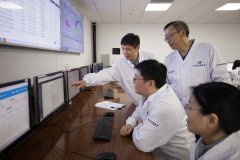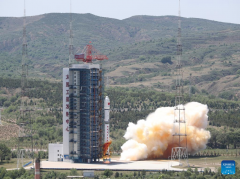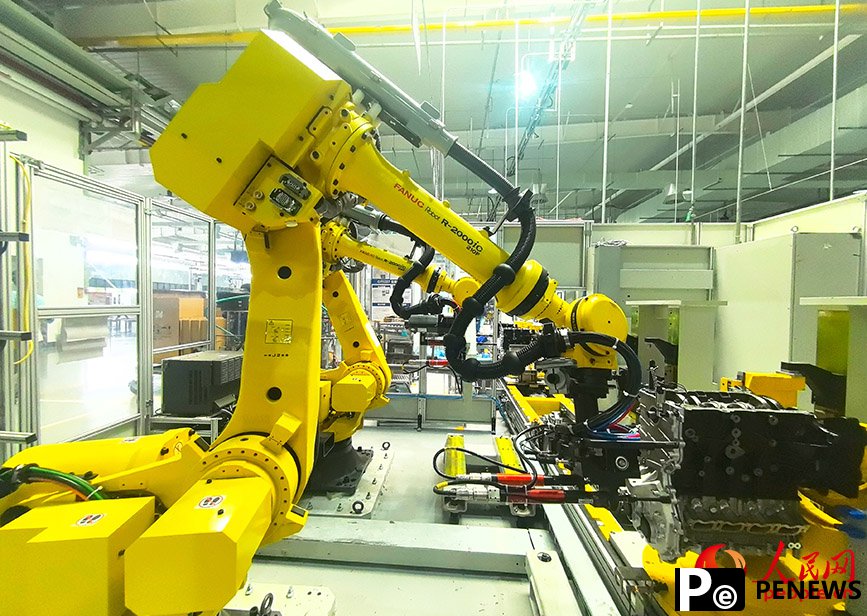Home>>
Intellectual property right protection crucial to healthy AI developmentBy Gong Wenjing (People's Daily) 09:31, June 27, 2024
Artificial intelligence (AI) creation differs greatly from traditional models of creation. It involves "feeding" massive amounts of data for AI training and "referencing" existing works. These "feedings" and "references" raise concerns about potential copyright infringement, sparking extensive discussions in relevant industries.
In April this year, the Beijing Internet Court ruled on China's first AI voice rights case. The plaintiff was a voice-over artist surnamed Yin who found out in May 2023 that her voice was being used in numerous audiobooks online without her consent.
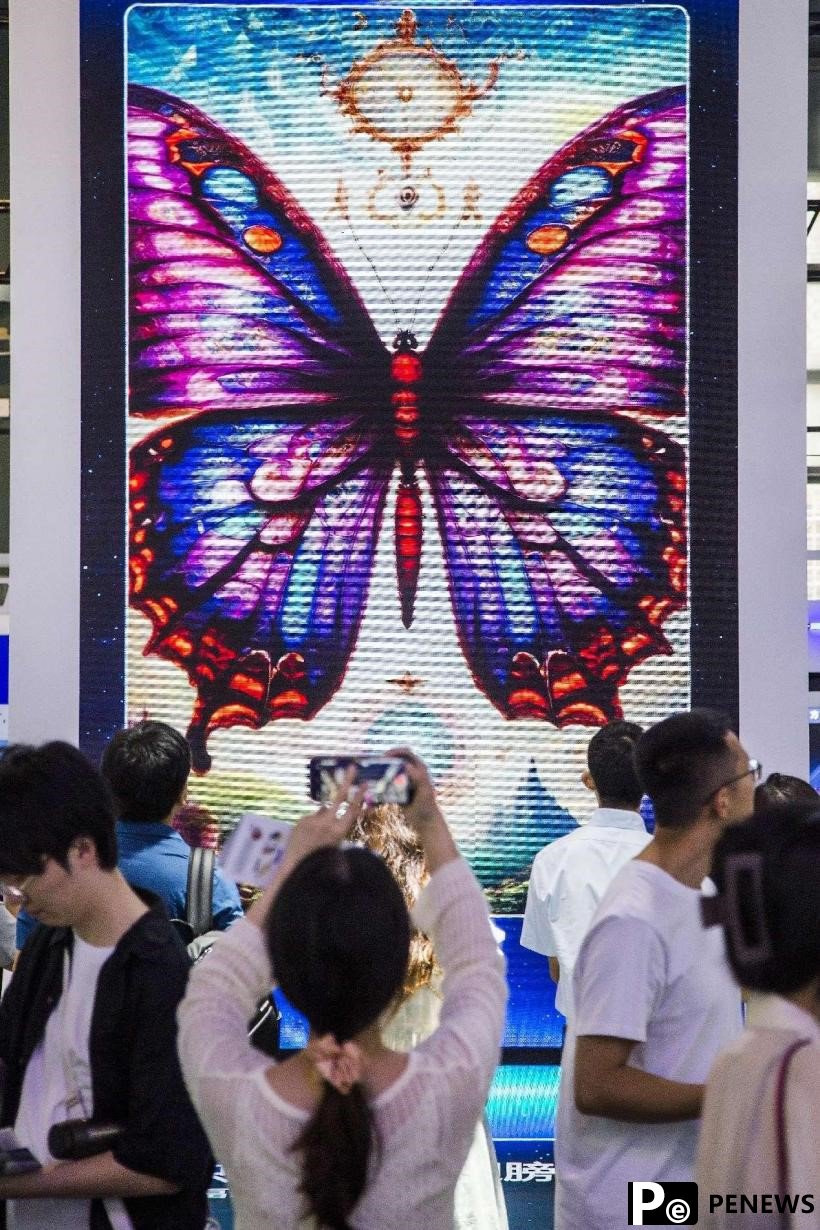
An artificial intelligence-generated painting is exhibited at the 2023 World Artificial Intelligence Conference (WAIC) held in Shanghai, east China. (People's Daily Online/Xu Kunde)
After the investigation, it was found that one cultural media company, with whom Yin had previous business dealings, handed over the audio recordings of Yin's audiobooks to another software company which then processed her voice using AI technology and sold it to the operator of the app "Magic Sound Workshop."
The court decided that the defendants - the cultural media company and the software company - are jointly responsible for compensating Yin for economic losses of 250,000 yuan ($34,433). The app operator and the software company are also required to issue an apology to the plaintiff within seven days of the judgment taking effect.
Copyright infringement risks are present in every stage of AI creation. During the development phase, there are issues around authorizing training data copyrights. In the utilization phase, there are questions about determining the nature of generated content and attributing copyrights.
Furthermore, because AI-generated content follows the creative patterns of its training works, there may be infringement concerns arising from style imitation, such as paintings in the style of Van Gogh or AI-generated songs imitating famous singers, which has sparked discussions about the legitimacy of style imitation.
In November 2023, the Beijing Internet Court concluded a widely followed copyright infringement case involving AI text-to-image generation between plaintiff surnamed Li and defendant surnamed Liu. The court made a groundbreaking ruling that AI-generated images with a natural person's independent intellectual input should be recognized as copyright-protected works.
"The AI generative cases that the court has been handling typically involve copyrights, personality rights, data rights, and other new types of legal issues, many of which are the first of their kind in China," said Yan Jun, a senior judge of the Beijing Internet Court.
The question of whether AI-generated content is eligible for copyright protection is a contentious topic that needs to be addressed promptly given the rising intellectual property (IP) challenges, said Yan.
Is copyright protection valid for all AI-generated content?
"The personalized features in AI-generated content, the degree of creator involvement, and choices made on creative elements vary from case to case, making it impossible to make generalizations," said Zhang Ping, a professor with Peking University Law School.
The generated content can only be protected by copyright law if it meets the criteria of originality and copyrightability, Zhang added.
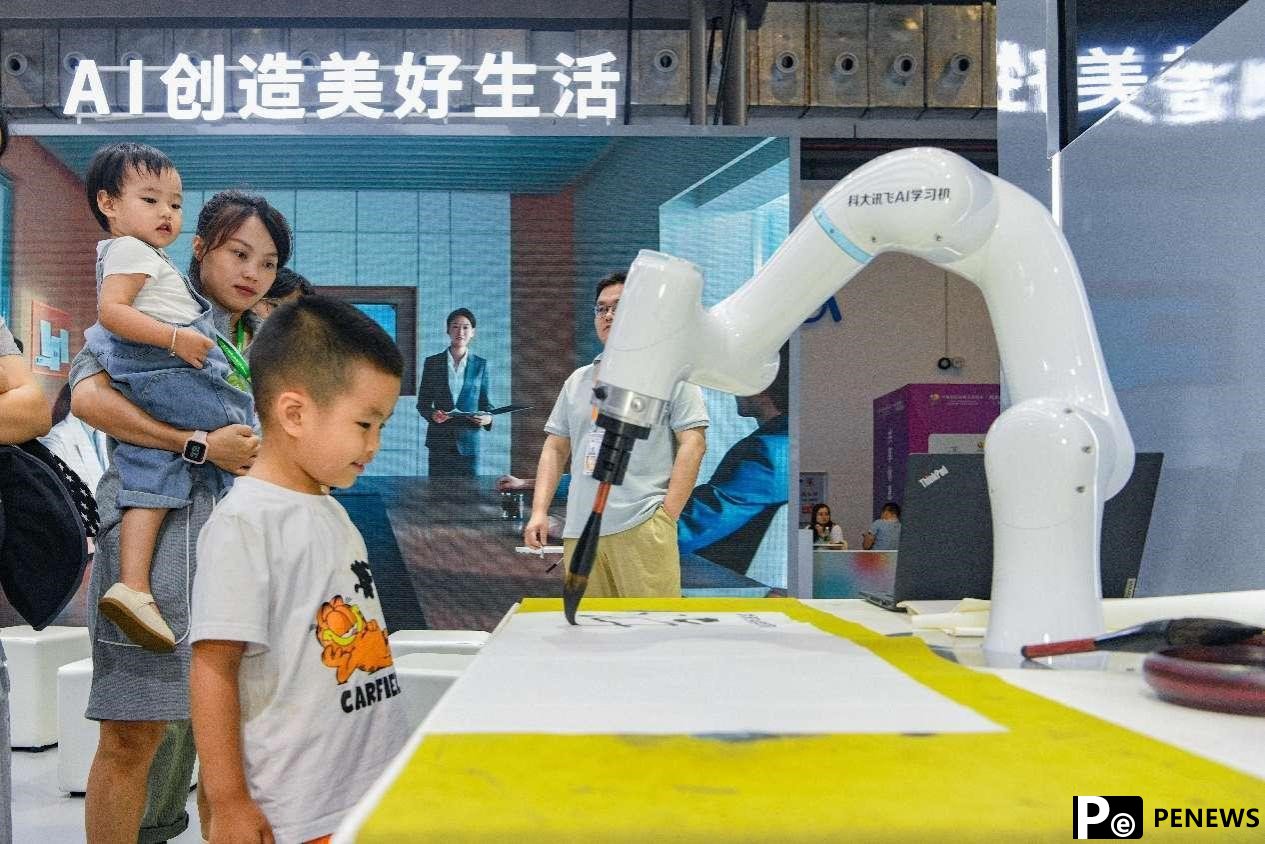
An artificial intelligence-enabled robotic arm writes Chinese calligraphy at the fourth China International Consumer Products Expo (CICPE) held in Haikou, south China's Hainan province, April 2024. (People's Daily Online/Yang He)
Take the above AI text-to-image copyright infringement case as an example. The plaintiff created the images in question using generative AI technology, showcasing the intellectual input in decisions such as character presentation, prompt order, and parameter settings.
"The plaintiff made a series of aesthetic choices and personalized judgments in creating the images, exhibiting outstanding individualized expression that met the 'originality' criteria. Therefore, the plaintiff holds the copyright to the images," said Bai Niannian, a senior partner at Gongheng Law Firm based in Beijing.
Content auto-generated by AI without human originality should not be considered a work nor be eligible for copyright protection, Bai added.
Zhang believes that the current copyright system uses human intellectual achievements as the benchmark, thus lacking comprehensive provisions for AI-generated content. Meanwhile, traditional infringement determination standards also face applicability challenges in AI creation scenarios, presenting new obstacles for judicial practices.
The legal framework for AI-generated content is closely linked to the core interests of copyright holders and has a direct impact on industrial development and technological progress. Finding a proper balance between protection and development tests the governance wisdom of all parties involved.

